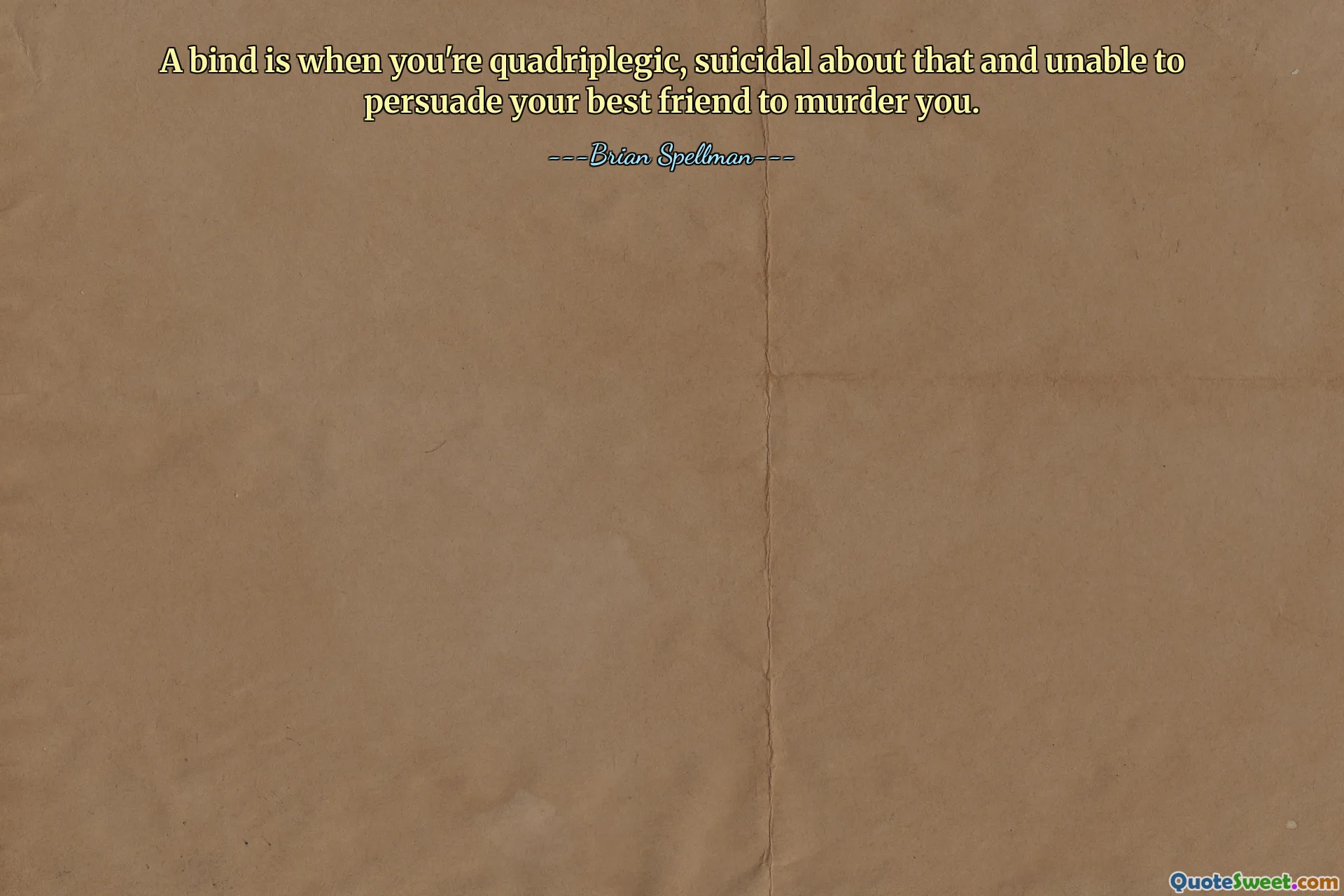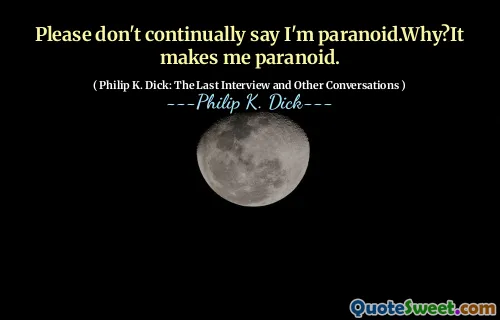
A bind is when you're quadriplegic, suicidal about that and unable to persuade your best friend to murder you.
This quote starkly highlights a deeply painful and complex human experience. At its core, it deals with the sense of entrapment and despair faced by someone with severe physical disabilities who simultaneously battles suicidal thoughts. The quote brings to light the agonizing conflict of having both profound suffering and a strong desire for relief, yet being unable to find solace even in the support of a trusted friend. It underscores themes of isolation and helplessness, where the individual feels trapped within their own predicament, not only physically but emotionally and socially as well. The use of the word "bind" powerfully conveys a situation that's not just difficult but seemingly inescapable.
From a broader perspective, the quote challenges us to consider the ethical and emotional dimensions of caregiving, friendship, and mental health. It provokes a reflection on how society addresses chronic illness, disability, and the desperation that can accompany them. The moral boundaries implied—wanting assistance in ending one's suffering and the refusal or inability of a friend to oblige—highlight complex questions about consent, compassion, autonomy, and the limits of support.
Such a statement pushes us to develop greater empathy and awareness for those facing extreme struggles. It also calls for improved conversations about mental health, disability rights, and end-of-life options. While the tone may seem bleak, it advances critical considerations about human dignity and the need for meaningful solutions, compassionate care, and open dialogues surrounding suicide and suffering.






